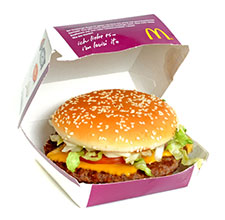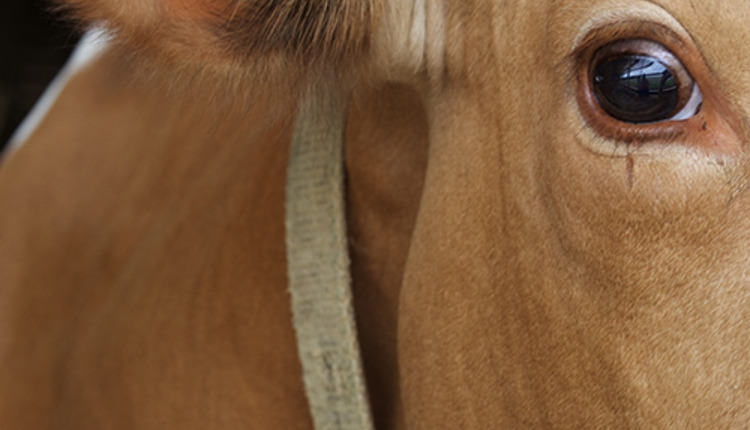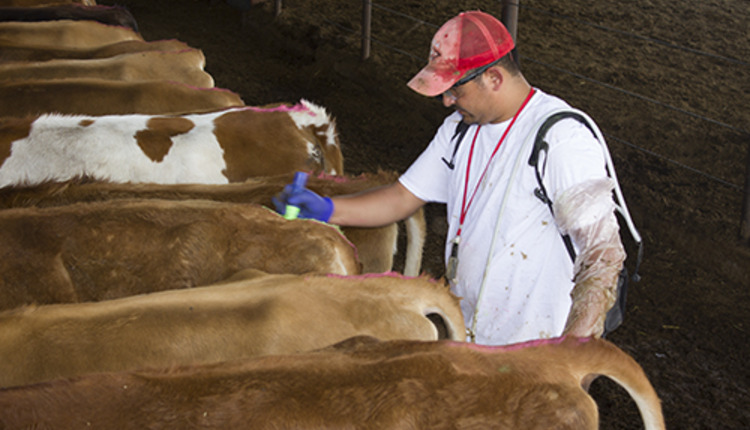 Long known for its crisp fries and convenience, McDonald's burgers have shed their "conventional" skin.
Long known for its crisp fries and convenience, McDonald's burgers have shed their "conventional" skin. On Thursday, October 1, the fast-food chain released the "McB," its first 100 percent organic-beef burger. The newest menu item will be sold at approximately 1,500 McDonald's in Germany and is available through November 18, 2015.
In addition to the organic beef patty, the McB includes Lollo Bionda lettuce, tomatoes, pickles, red onion rings and Edam cheese.
McDonald's is sourcing its beef from organic farms throughout Germany and Austria, noted the Huffington Post. The German division of the global corporation noted "that all its franchises have been subjected to an elaborate certification procedure by state-approved organic inspection bodies.
The move could be a testing ground for more permanent menu updates, as the chain attempts to appear more health-conscious and environmentally friendly, while meeting current market demands. Behind the U.S., Germany is the second largest organic food market.
A similar shift would present a slightly larger hurdle in the U.S. With 14,000-plus restaurants across the states, ample time would be needed to secure adequate supplies of organic meat products. Despite growing at a rapid pace, the U.S. organic beef market only accounts for about 3 percent of total meat production, according to USDA data.
Even with consumer demand, the switch from conventional to organic practices may take significant prodding, since beef producers are currently recording their strongest profits to date.
(c) Hoard's Dairyman Intel 2015
October 5, 2015








